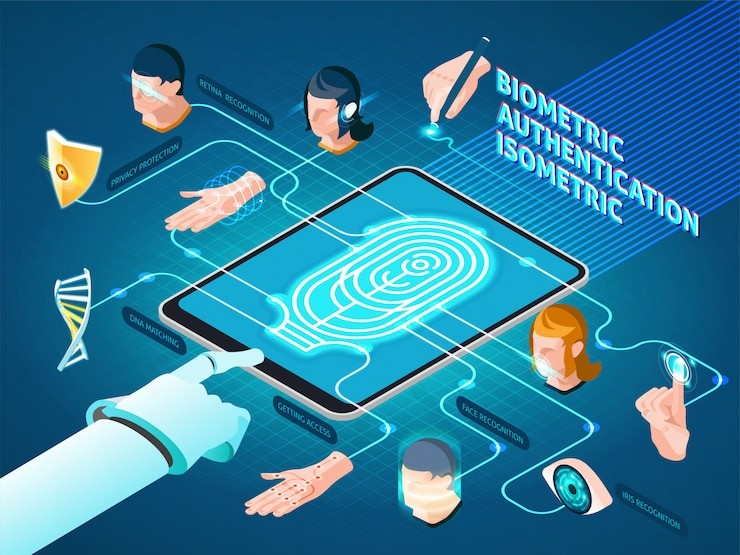Introduction
In today’s rapidly evolving digital landscape, traditional events are no longer enough to captivate audiences and create lasting impressions. As technology continues to advance, the events industry has embraced innovation to deliver immersive and engaging experiences. This article explores the world of Tech-Infused Events Innovation and Engagement, showcasing how technology has revolutionized the way we plan, execute, and attend events. From augmented reality to block chain-powered ticketing systems, this masterclass in innovation and engagement will leave you inspired and eager to explore the limitless possibilities of the modern event industry.
The Evolution of Events

Events have come a long way since the dawn of civilization. From ancient gatherings in
amphitheaters to modern mega-conferences in state-of-the-art convention centers, the
concept of bringing people together for various purposes has been ingrained in our social
fabric. However, as the world continues to evolve, so do the expectations and demands of
event attendees.
In the past, events primarily served as platforms for information dissemination,
networking, and entertainment. While these core objectives remain intact, the means to
achieve them have been transformed by technology.
The Power of Technology
The integration of technology into the events industry has ushered in a new era of
possibilities. Today, events are not limited by physical boundaries but can extend their
reach to global audiences through digital channels. The power of technology lies in its
ability to enhance engagement, personalize experiences, and create lasting impressions.
In this comprehensive article, we will delve deep into the realm of tech-infused events. We
will explore the myriad ways in which technology has become an indispensable tool for
event planners, organizers, and attendees alike. From augmented reality to block chain-powered ticketing systems, we will uncover the innovations that are reshaping the event landscape.
The Tech-Infused Event Experience

A Glimpse into the Future
The future of events is undeniably tech-infused. Attendees can look forward to immersive
experiences that go beyond the physical limitations of venues. The blending of physical and
digital elements will create a dynamic and engaging environment that leaves a lasting
impact.
Immersive Environments
Imagine walking into an event where the boundaries between the physical and digital
worlds blur. Immersive environments, facilitated by technologies like augmented reality
(AR) and virtual reality (VR), transport attendees to fantastical realms, providing a truly
unique experience.
Personalized Experiences
One size no longer fits all when it comes to events. Technology allows for the
personalization of every aspect of the event experience, from customized schedules and
content recommendations to tailored networking opportunities. Attendees can expect
events that cater to their individual preferences and interests.
Augmented Reality (AR) and Virtual Reality (VR)

Bridging the Physical and Digital Worlds
Augmented reality (AR) and virtual reality (VR) are at the forefront of event technology.
These technologies bridge the gap between the physical and digital worlds, allowing for
interactive and immersive experiences that were once unimaginable.
AR and VR Applications in Events
AR and VR are not just buzzwords; they are transformative tools in event planning. From
virtual venue tours to interactive product demonstrations, the applications of AR and VR in
events are diverse and captivating.
Enhancing Engagement through AR
One of the key benefits of AR is its ability to enhance engagement. By overlaying digital
content onto the real world, AR provides attendees with a dynamic and interactive
experience. Whether it’s gamified scavenger hunts or informative overlays at trade shows,
AR keeps attendees engaged and entertained.
Artificial Intelligence (AI) in Event Planning

The Role of AI in Event Management
Artificial intelligence (AI) has found its place in event planning and management. AIl powered tools and algorithms streamline various aspects of event organization, from attendee registration to post-event data analysis.
Predictive Analytics for Attendee Insights
AI’s true power lies in its ability to analyze vast amounts of data to derive meaningful
insights. Predictive analytics can help event organizers understand attendee behavior,
preferences, and expectations, enabling them to tailor their events for maximum impact.
Chabot’s and Virtual Assistants
Catboats and virtual assistants have become invaluable additions to event communication.
They provide instant support to attendees, answer questions, and guide them throughout
the event. These AI-driven solutions enhance attendee satisfaction and overall event
experience.
Block chain: Transforming Ticketing and Security
The Security Dilemma
Event ticketing and security have long been a concern for organizers and attendees alike.
Traditional ticketing systems are prone to fraud and counterfeiting, while security
breaches can compromise sensitive data.
The Block chain Solution
Block chain technology has emerged as a secure and transparent solution for ticketing and
security challenges. By leveraging the block chain, event organizers can ensure that tickets
are genuine, traceable, and tamper-proof.
Eliminating Fraud with Smart Contracts
Smart contracts, built on block chain technology, automate ticketing processes and ensure
that tickets can only be transferred or resold under predefined conditions. This eliminates
the risk of fraudulent ticketing practices and enhances trust within the event ecosystem.
5G Connectivity and its Impact on Events

The Need for Speed
In the era of tech-infused events, a fast and reliable internet connection is non-negotiable.
The rollout of 5G networks promises lightning-fast speeds and low latency, revolutionizing
the way attendees interact with events.
Real-time Streaming and Interaction
With 5G connectivity, real-time streaming of high-quality content becomes a reality.
Attendees can participate in live polls, interact with speakers, and network with others
seamlessly, enhancing their overall event experience.
IOT Integration
The Internet of Things (IOT) plays a crucial role in event management. From smart badges
that collect attendee data to location-based services that guide attendees through event
venues, IOT integration enhances the efficiency and engagement of tech-infused events.
The Rise of Hybrid Events
Blending Physical and Virtual Elements
Hybrid events combine the best of both physical and virtual worlds. Attendees can choose
to attend in person or participate remotely, opening up new opportunities for event
organizers to reach wider audiences.
Advantages of Hybrid Events
Hybrid events offer flexibility and accessibility. They cater to diverse attendee preferences
and enable cost-effective participation. Event organizers can extend their reach while
providing a seamless experience to both physical and virtual attendees.
Navigating the Challenges
While hybrid events offer numerous advantages, they also present challenges such as
technical logistics, content delivery, and maintaining engagement for remote attendees.
Successful execution requires careful planning and execution.
Event Apps and Their Functionality
Comprehensive Event Information
Event apps have become indispensable tools for attendees. These apps provide
comprehensive information about the event, including schedules, speaker profiles, and
session details, all at attendees’ fingertips.
Networking Opportunities
Event apps facilitate networking by connecting attendees based on their interests and
profiles. They offer features such as in-app messaging and appointment scheduling, making
it easier for attendees to connect with like-minded individuals.
Interactive Maps and Schedules
Navigation within large event venues can be daunting. Event apps provide interactive maps
that guide attendees to their destinations and help them create personalized schedules to
make the most of their time at the event.
Gamification: Making Events Fun and Rewarding

Gamification Elements in Events
It injects an element of fun and competition into events. Attendees can
participate in challenges, earn points, and compete for prizes. Gasified elements keep
attendees engaged and motivated throughout the event.
Boosting Engagement and Participation
Gamification encourages active participation. Attendees are more likely to interact with
sponsors, attend sessions, and explore the event when they have the opportunity to earn rewards and recognition.
Prizes and Incentives
Prizes and incentives add excitement to gasified events. From exclusive merchandise to
VIP experiences, event organizers can offer enticing rewards to motivate attendees to engage with the event’s gamified elements.
Biometric Technology for Enhanced Security

Fingerprint and Facial Recognition
Biometric technology enhances event security by providing secure and convenient access
control. Attendees can use fingerprint or facial recognition to check in and gain entry to
restricted areas.
Streamlined Check-ins and Access Control
Biometric authentication simplifies the check-in process, reducing wait times and
enhancing the overall attendee experience. It also ensures that only authorized individuals gain access to secure areas of the event.
Privacy Concerns and Data Protection
While biometric technology offers enhanced security, it also raises privacy concerns. Event
organizers must implement robust data protection measures and obtain attendees’ consent
to use biometric data.
Social Media Integration
Leveraging the Power of Social Networks
Social media is a powerful tool for event promotion and engagement. Integrating social
media into events allows attendees to share their experiences, create buzz, and connect
with fellow participants.
Creating Event Buzz
Event organizers can leverage hashtags and social media campaigns to create anticipation
and excitement around their events. Live updates, photos, and videos shared by attendees
amplify the event’s reach.
Real-time Feedback and Engagement
Social media platforms enable real-time interaction between attendees and event
organizers. Attendees can provide feedback, ask questions, and receive instant updates,
fostering a sense of community and engagement.
Sustainability and Green Technology
The Event Industry’s Environmental Impact
Large-scale events often have a significant environmental footprint. The use of resources,
energy consumption, and waste generation are pressing concerns for the event industry.
Sustainable Practices
Event organizers are increasingly adopting sustainable practices to reduce their
environmental impact. This includes minimizing waste, sourcing eco-friendly materials,
and implementing energy-efficient technologies.
Innovations in Eco-friendly Event Tech
Green technology is making its way into the event industry. From solar-powered event
venues to reusable and biodegradable event materials, innovations in eco-friendly event
tech are helping events become more sustainable.
Data Analytics and Insights

Collecting Valuable Data
Events generate vast amounts of data, from attendee demographics to session attendance.
Collecting and analyzing this data provides event organizers with valuable insights into
attendee behavior.
Analyzing Attendee Behavior
Data analytics tools can uncover patterns and trends in attendee behavior. Organizers can
use this information to make informed decisions, such as scheduling popular sessions or
adjusting event layouts.
Post-event Evaluation
The learning doesn’t stop when the event concludes. Post-event data analysis allows
organizers to evaluate the event’s success, identify areas for improvement, and make data driven decisions for future events.
Tech Challenges in Event Management
Connectivity and Technical Glitches
While technology enhances events, it also brings challenges. Connectivity issues, technical
glitches, and equipment malfunctions can disrupt the attendee experience.
Security Concerns
The digital nature of tech-infused events brings security concerns. Protecting attendee
data, preventing cyberattacks, and ensuring the integrity of event technology are
paramount.
Overcoming Challenges
Event professionals are adept at overcoming tech challenges. Robust contingency plans,
technical support teams, and thorough testing can help mitigate potential issues and keep
events running smoothly.
The Future of Tech-Infused Events
Predictions and Trends
The evolution of tech-infused events shows no signs of slowing down. Predictions for the
future include even more immersive experiences, greater personalization, and integration
with emerging technologies.
Emerging Technologies
Technologies such as augmented reality glasses, holographic displays, and AI-driven event
assistants are on the horizon. These innovations promise to take tech-infused events to
new heights.

